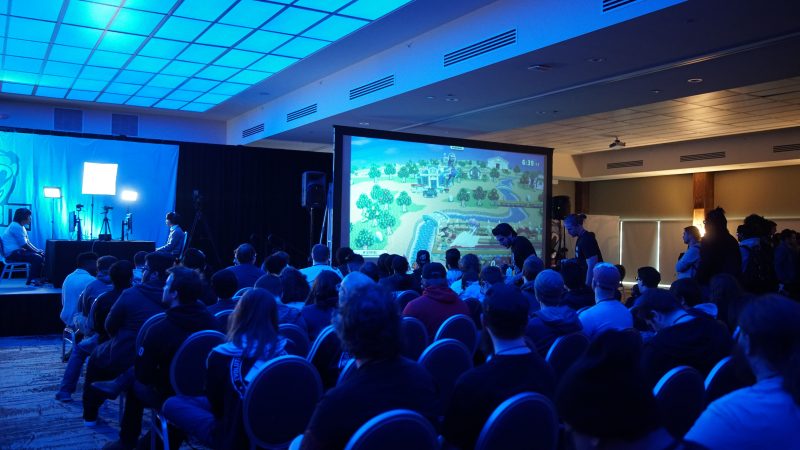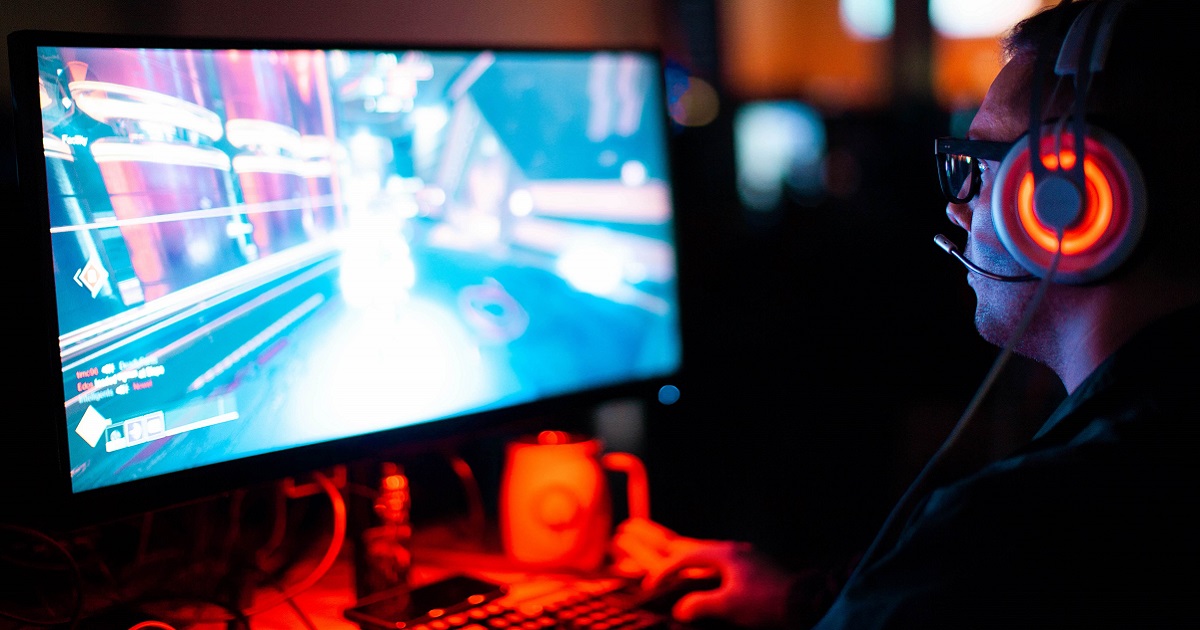Game On: Tapping into Esports
WYN thinkTALK session on Game On: Tapping into Gaming and Esports Businesses in July 2021 looks into esports as a business and more. Here’s a Summary of the hour-long webinar.
Speakers
Chester King, CEO, British Esports Association, United Kingdom
Wan Hazmer, Co-founder and CEO, Metronomik Sdn Bhd, Malaysia
Moderator: Kamarul Bahrin Haron, Anchor and Journalist, Malaysia
‘In the UK, esports qualifications that you get certificates and qualifications for a year 12 and 13 so high school level, and you can actually study full time esports but it’s not about becoming a better game,’ begins Chester King, CEO of British Esports Association. ‘It’s about learning transferable skills. It’s learning soft skills. It’s learning about resiliency but you could also be learning about the business of esports or the agency of esports. Then, you go on to higher education and there are six universities in the UK where you can study esports. Where we’re selling it with Pearson, a big esports provider. There’s an association we helped write the content, because every day, every week, every month, esports is evolving and that’s why it’s so passionate with young people. It’s a live subject.’
Defining Esports
Chester King: Esports is organised competitive video gaming, so this is always human versus human, always trying to be someone else or another group and it’s not about beating a computer. We’ve had great support, not financially, from the government but from just understanding how great an activity and how inclusive esports is.
As a father of three, what I like about esports is it’s an active media. You’re improving your brain trying to outdo another human. It’s like a modern version of chess but it’s more exciting. Understand the benefits of competing and socialisation while you’re playing esports. The fact that you’re talking to your friends, even though they can be in a different building and you’re trying to achieve something together as a team, the bonding is incredible.
Wan Hazmer: Video game’s all about the person playing the game. Parents are getting more aware of this. Organisers and developers have the responsibility to tell kids and parents that the video game industry is actually healthy.
Esports as a Business
Chester King: There’s around 30 different recognised esports and it does vary by continent as well as country. At the moment, on a business point of view you’ve got two publishers that, in my opinion, have made a very positive mood for sustainability around esports and investments. Activision Blizzard, who owns Call of Duty and Overwatch, sold 20 franchises for Overwatch and 12 franchises for Call of Duty. This was people buying in for a long-term franchise like an American football team, where you can’t be relegated so you play in a world league. I put together the UK’s franchise and I’m a small shareholder of that. Why I personally invested in that is because of the sustainability around the franchise model where the publisher and the team owners share revenue that come in, which could be sponsorship, media rights and obviously, live events.

Last year, we ran the biggest live event in the UK, which was in Copper Box Arena, who bought a three-year [rights] deal to stream the content. They’re not charging for it. They’re just buying content. It’s all about content. By having live events, there’s no latency or ping rate, that’s good for a player because you know you’re on a level playing field. Also, each title has a different atmosphere. For example, Call of Duty, a big game in the west has USD20 billion in revenue over the years. Apart from the Marvel films it’s the second biggest franchise in the world.
In other esports titles, the publishers do a very good job and they own as well as control the IP. This is a really interesting point that distinguishes esports. We don’t need anyone’s permission to put on a commercialised esports event, you need a license agreement from the publisher who is very protective because they’ve invested a huge amount of money into their brand. What I like about it is there’s a control element about standards, code of conduct and everything else including player welfare. Even though competitive gaming has been around for decades, the esports element has only become more professional recently.
Investing in Esports
Chester King: When it comes to investing in a team, like what I’ve done – I’ve invested in two teams personally, one is the Call of Duty franchise and the other is Rocket League – the revenue from the three-year media deal with YouTube is a huge amount for Call of Duty League and Overwatch League. With live events, COVID-19 had an impact and everything went online but that shows the resilience of esports. One thing we advocate in the industry it’s about a balanced life. To be a better gamer, you have to be physically fit. Most of the pro gamers advocate eat well, sleep well, look after your eyes, and be physically fit.
As an investment in sponsors and brand, what you want is people outside esports investing. For example, Mercedes is currently a big sponsor of esports. They’re realising they can target the youth. I’m really excited about the investment that’s needed to go into esports because the more competitions, the more opportunities to create heroes. Furthermore, it’s inclusive. There’s no barrier if you’re a girl or if you’re in a wheelchair.
Getting a Little Bit of Education
Chester King: The gaming industry is bigger than TV, music, film, put together. Gaming has become part of your life and we continue to educate people about the right games. There’s no element of the soft skills. So, we’ve all got a part to play and gaming has been hugely beneficial for a lot of people but everyone’s been slightly embarrassed to admit it. Sports, gaming and esports are incredibly positive things in our lives.
There are two things to bear in mind. One, from a duty of care. We’ve a code of conduct in our schools that every player signs up to respect each other that they’re not sexist nor racist. If they’re caught being abusive then they’re red-carded and the teachers get involved. Two, with regard to increase diversity, at the moment we’ve got around 33 per cent women participants. Call of Duty in the UK has 2.5 million people that play every day and 600,000 of them are women.
The biggest charity with us, NSPCC which is the UK’s anti cruelty charity, have just written a guide to help parents understand about terminologies in esports because there are ways that you can offend someone. We’re at really early stages, what I like is the fact that we’re having these conversations now. There are lessons and values we can learn from esport as well as any part of life and bring that in. Also, as long as people know that each game is age-rated.
Wan Hazmer: As developers, we have the responsibility to cater for, let’s say, colour blindness and blindness is also something we’re really looking into. As you probably know, Naughty Dog’s The Last of Us can be played by a blind person. Hopefully, in time to come developers will be more aware of these things.
An Olympics Possibility?
Chester King: Under the UK law esports is not a sport, it is a game and there’s a huge distinction. The Olympics is about sports and esports is like chess and bridge in the UK. However, in Poland, chess is a sport and so, esports is a sport there. It’s a possibility if the Olympics has a game or a virtual sport that reinforces the values of esports. The question is, does esports need the Olympics, or does the Olympics need esports? Everyone’s trying to get esports into the Olympics. Esports is not, in my opinion, a sport. There are challenges in doing international tournaments such as not being able to have a country participating from Japan and England on a certain server and lag rate.
Wan Hazmer: The dynamics [of a physical sporting event] do affect the physicality of the event itself. It would affect how parents view the games. They may see the importance of esports when they actually see people physically cheering and the competition happening. Unfortunately, the pandemic prevents that from happening. and bit so that’s a bit unfortunate.
Last Words
Chester King: You’re seeing an industry which promotes physical health as important as being a gamer. You shouldn’t compare esports as a conflict with sports, esports as a conflict with passive media or social media. It’s like a hobby. You have to change your attitude with regard to the digital divide, which is an issue. Interestingly, the police and NHS in the UK are setting up gaming hubs as well as facilities for young people who don’t have them. We’re working with stakeholders in the UK that care about youth like we do to encourage them. Playing esports is better than not playing a sport.
Photos by Sean Do and Stem List on Unsplash.





